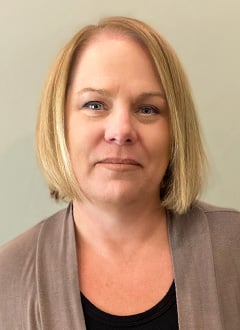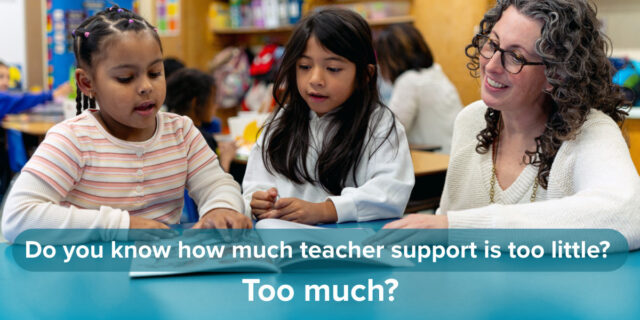
If conferring is the heartbeat of the writing classroom when we are teaching in person, perhaps it becomes even more crucial in a remote setting. Teaching (and learning) remotely can feel isolating, distant, and maybe even a little cold. What better way to counter that than to make time to connect with students one-on-one to talk about their writing and themselves as writers? When you coach, encourage, nudge, compliment, validate, and support individual kids, you are building a safe emotional space, one interaction at a time.
If conferring is the heartbeat of the writing classroom when we are teaching in person, perhaps it becomes even more crucial in a remote setting. Teaching (and learning) remotely can feel isolating, distant, and maybe even a little cold. What better way to counter that than to make time to connect with students one-on-one to talk about their writing and themselves as writers? When you coach, encourage, nudge, compliment, validate, and support individual kids, you are building a safe emotional space, one interaction at a time.
Watch an example of a remote conference with fifth grader Brady:
Here are some tips:
View conferring as an opportunity to connect with kids. Conferring with kids remotely provides a unique window into kids’ lives. You learn about their interests, their pets, and their families. Connecting with kids isn’t a feel-good frill. Teachers who are intentional about connecting with students and taking interest in them as humans find that their students are more engaged when writing.
Start small and casual. Talking to someone about your writing takes courage so you’ll want to spend some time establishing a trusting relationship with students. Check in frequently but keep the chats short and positive. Once you’ve established trust and students develop some confidence in their writing, you can ease into richer conversations in which you nudge a writer to try a new strategy, craft move or convention.
Keep the focus simple. When you confer, keep two simple questions in your mind. 1. What is this writer doing well? 2. What might this writer need next? I don’t need to teach the world of writing in every conference. In the video, I give Brady a very specific compliment and then show him just one tip that he can use in this piece of writing (and others) to make his writing even better.
Celebrate discovery and risk-taking. Rich and beautiful writing, like rich and beautiful living, requires risk-taking. It requires us to try, fail, brush ourselves off and try again – over and over again. So, when you notice students trying to spell a complex and descriptive word, celebrate the attempt--even if the word is not spelled correctly. If an emergent writer is trying a new kind of punctuation (like periods) and you notice that the child has scattered them all over (like. after. every. single. word.), instead of jumping straight to correction mode, take a moment to celebrate the fact that they were willing to trying something out.
Be mindful of your facial expressions. I find that most of us don’t do our best work when someone is looking at us with a furrowed brow. Because of the nature of the tender, deep work that students are doing when they write, smile as much as you can and show interest. Your smile and positive countenance might help the child know that you are coming alongside him to support him and his work.
• • •
For more ideas on conferring remotely, check out Carl Anderson’s brilliant (and very popular resource): 10 Tips for Conferring with Student Writers Online.
• • •
To learn more about Every Kid A Writer visit Heinemann.com. 
🎧 Listen to our recent conversation Kelly Boswell. 🎧
What do we do when students are reluctant to write? The most important thing to remember is that it's the conditions, not the kids.
 Kelly Boswell has many years of experience as a classroom teacher, staff developer, literacy coach, and district literacy specialist. She is the author of Every Kid A Writer and the coauthor of Crafting Nonfiction and Solutions for Reading Comprehension. She is also the author of several nonfiction children’s books.
Kelly Boswell has many years of experience as a classroom teacher, staff developer, literacy coach, and district literacy specialist. She is the author of Every Kid A Writer and the coauthor of Crafting Nonfiction and Solutions for Reading Comprehension. She is also the author of several nonfiction children’s books.
Kelly works with schools and districts around the country to support educational leaders, coaches and teachers. Her emphasis is on developing literacy practices that help students become joyful and passionate readers and writers.


